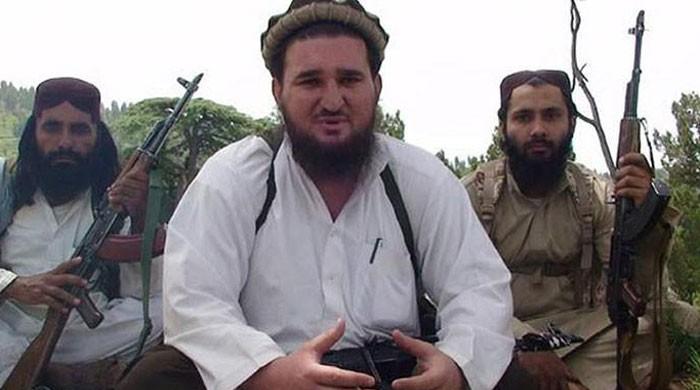Season of Surrender: Will there be more Ehsanullah Ehsans?
"There cannot just be one policy to counter terrorism. Force can only achieve so much," writes Rahimullah Yusufzai
May 02, 2017

This is neither a first nor a new strategy.
Pakistan's security agencies have always been eager to exploit differences and rifts in the Taliban ranks. But Ehsanullah Ehsan's defection, ostensibly, was too good to be true and an opportunity that could not be missed to discredit his former colleagues.
Ehsan, the central spokesman of the Tehreek-e-Taliban Pakistan (TTP) and later of the breakaway Jamaatul Ahrar, probably made an offer that allows him to continue living, in exchange for deserting the militants. The offer was then accepted and a confessional statement arranged.
In the six-minute video recording, available with the media, the former Taliban commander excoriates his terrorist group and vindicates Pakistan’s stand that foreign intelligence agencies have been bankrolling terror in the country.
Little of what Ehsan revealed in his video statement is new information. It is no secret that militant groups, such as his, are involved in kidnapping for ransom, extortion, target killings and drug trafficking, or that after the 2009 military offensive in Swat and South Waziristan, terrorists fled across the border into Afghanistan, and built links with the National Directorate of Security, the Afghan intelligence agency, and India’s Research and Analysis Wing (RAW).
Ehsan's much-publicised confession only reinforces what we already knew.
In the past, defections from the militant ranks have been few and far between. Others, who left, did so quietly without sitting down for a televised public statement. The last high-profile surrender was of Asmatullah Moavia, a prominent commander of the so-called Punjabi Taliban, in July 2014. Reportedly, Moavia played a role in convincing Ehsan to lay down his arms. If true, this would pass on the baton to Ehsan to persuade other colleagues to follow suit.
Here, it is important to note Ehsan's, aka Liaquat Ali, motivation. Prior to 2014, the TTP was strong and disciplined. The state’s writ, on the other hand, especially in FATA and Khyber Pakhtunkhwa, was weak. It was then that a frazzled government made offers of peace with the militants, accepting terms largely favourable to the Pakistani Taliban. In times like those, Ehsan would have never considered leaving his brothers. But then Baitullah Mehsud, Hakimullah Mehsud, Waliur Rahman and Qari Hussain, prominent leaders of the outfit, were taken out one-by-one in US drone strikes. Soon after, militants fought for leadership and formed their own factions.
Now, the state can negotiate from a position of strength. And the Taliban would have to take whatever little is on offer.
Also read: Former TTP spokesman admits RAW, NDS used terrorists to destabilise Pakistan
This could be the new modus operandi, to reintegrate militants into the national mainstream. This policy is already being tried and tested with the Baloch separatists, who are brought back into the fold after putting down weapons.
For now, the terms of agreement with Ehsan are confidential. Regardless, forgiveness for people of his kind and stature is not advisable. The frontman claimed, proudly, a series of brutal terror attacks in Pakistan since he joined the TTP in 2008. Should he be granted amnesty? Should those who picked up lifeless bodies of their sisters, brothers, sons, and daughters, mothers and fathers be asked to forgive this man or others of his ilk? The state has to keep in mind the larger picture while taking decisions, but the feelings of bereaved families should not be ignored.
Until now the government, particularly the military, has taken a tough stand against the militants. Those captured are swiftly tried in military courts, convicted, and sent to the gallows. But what about those who were genuinely misled and coerced into joining terrorists? A new policy will have to be formulated, which allows them a path back to normal life. This would weaken the TTP, which is in Afghanistan now, beyond Pakistan’s reach.
There cannot just be one policy to counter terrorism. Force can only achieve so much.











